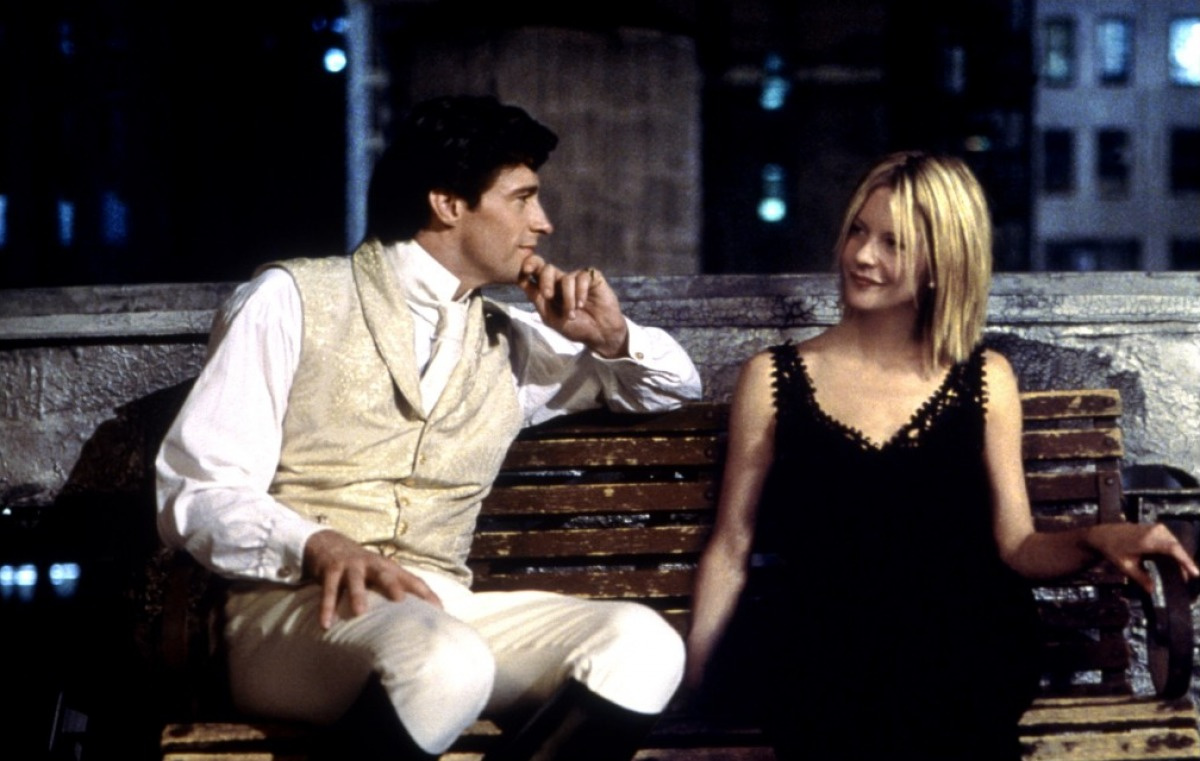
Directed by: M. Night Shyamalan
Starring: Bruce Willis, Haley Joel Osment, Toni Collette, Olivia Williams, Donnie Wahlberg
The Sixth Sense tells the story of an 11-year old boy named Cole (Osment), who is haunted by visions of ghosts. He is terrified of them, yet they will not stop appearing to him. What do they want? Child psychologist Malcolm Crowe (Willis) tries to help him find out, but he has issues of his own, including a wife who appears to have grown cold and distant toward him. Malcolm does not know why she acts as if he is not even there.
I will write this review to avoid spoilers in the off chance that you may be the one person who does not know the film's big revelation. I would not want to spoil it for you. The Sixth Sense is not so much about that anyway. It is about how Cole and Malcolm help each other cope with their respective problems. There are no exorcisms or tidy conclusions. They learn to live with their fates. The movie is not made to provide cheap scares, although it does sprinkle some in. It is about how Cole can reconcile the fact that ghosts, for whatever reasons, seek to communicate with him. Through this, Malcolm can help himself and understand his true nature.
Because the movie stars Bruce Willis, I expected the film to steer towards a conclusion in which he pulls out weapons and becomes an honorary Ghostbuster. Thank goodness he does not. He is as confused, helpless, and perplexed as the rest of us would be in this situation. As the film opens, he is shot in his home by a troubled youth he once treated. Months later, appearing to be recovered physically, but not emotionally, he begins working Cole's case. He knows Cole is an outcast at school and has no one but his hard working mother Lynn (Collette) to love him. He sees an intelligent boy trying his hardest to fit in, but how could he ever truly fit in?
Cole tries his hardest to hide from the ghosts and hide the fact that he sees them from his mother and Malcolm. Soon, he trusts Malcolm enough to reveal his secret in the famed "I see dead people" scene. After processing this secret, Malcolm suggests to Cole that he should listen to the ghosts to see what they want. How can he help them? Is Cole a conduit to help them find peace and move on to the afterlife? Cole is soon confronted with a ghost of a young girl who is vomiting and instead of running away, he chooses to listen and help. The truth about how she died is soon made clear, with Cole's help. For the first time, Cole sees the light at the end of the tunnel or at least a way to work through his visions.
The big revelation at the end is what many people remember the most about The Sixth Sense, but to me the best scene is the penultimate scene in which Cole finally shares his secret with his mother. He says, "Grandmom says hi,". Lynn thinks he is being cruel, but Cole tearfully proves that his story is not bunk by telling a story that only Lynn and his deceased grandmother would know. It is a truly remarkable scene in which these two people finally see inside the other and begin to bring healing to their distant relationship. I do wish Shyamalan could have written a better line for Cole than, "What you thinking, mama?" however. He does it twice in the film and it is awkward both times.
When I think child psychologist, I do not think immediately of Bruce Willis. I can not tell if he was a good or a bad one, but it is refreshing to see him put aside his action hero persona to play a person who does not have all the answers for Cole or himself. Osment was nominated for an Oscar for his performance and it is the anchor for the film. He allows his fear to shut himself off from the rest of the world, but soon convincingly learns how to help himself and Malcolm indirectly. Toni Collette was also nominated for an Oscar and she has a few pointed, powerful scenes as well.
Why Shyamalan was able to surprise and challenge us with a story is his ability to play with our perceptions. We think we know where it is heading and we are happy to see we are wrong. If there are two people sitting in a room alone, we naturally assume they each know the other is there. We assume they probably were speaking. If a character is present in a room full of people, we naturally assume everyone knows it. Shyamalan does not toy with us, but uses these assumptions to further his story. The end is not a cheat. It was there all along. If only we saw it.











